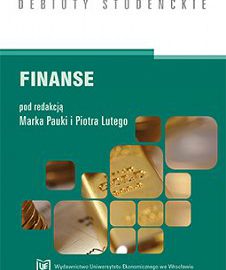Zapraszamy do lektury artykułu przygotowanego przez dr hab. Katarzynę Prędkiewicz, prof. UE i prof. Olgę Kalinowską-Beszczyńską z University of Exeter Business School nt. finansowania eko-projektów z wykorzystaniem crowdfundingu:
Link: Financing eco-projects: analysis of factors influencing the success of crowdfunding campaigns
cytowanie: Prędkiewicz, K. and Kalinowska-Beszczyńska, O. (2020), „Financing eco-projects: analysis of factors influencing the success of crowdfunding campaigns”, International Journal of Entrepreneurial Behavior & Research, Vol. ahead-of-print No. ahead-of-print. https://doi.org/10.1108/IJEBR-05-2020-0339
Abstract
Purpose
This research identifies and explains the key factors influencing the success of crowdfunding campaigns for eco-projects with the objective of detecting the types of eco-projects that may be most successful in raising funds.
Design/methodology/approach
The authors examined over 100 crowdfunding platforms (donation, reward and equity types) and selected 41 active eco-projects for further analysis. Data were collected from the selected platforms on ongoing and historical campaigns. The final sample was derived from observations of 139 eco-projects across 11 reward-based crowdfunding platforms. Logit models on variables related to the type of eco-innovation and characteristics of the campaign were used.
Findings
The results suggest that if they are treated as homogenous group eco-projects, they are no different than other types of projects present on a crowdfunding platform. However, variations are observed when they are divided into subcategories. The authors confirm that updates (positive), comments (positive) and targeted amount (negative) have the strongest impact on the success rate of crowdfunding for eco-projects. The authors observed a higher probability of success for projects aimed at saving water resources. Moreover, the findings suggest that emotional narratives do not increase chances of success for crowdfunding of eco-projects.
Originality/value
The authors aim to contribute to the ongoing discussion on whether there is a positive relationship between environmentally focused projects and the success rate. Providing a better understanding of the factors impacting the success rate of eco-projects should help future campaigns’ success, contributing to a sustainable society

